Scientific Advisory Board
Dr. Jennifer Cole
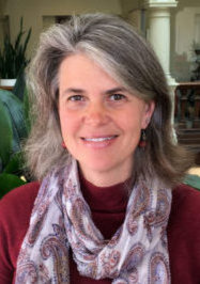
Dr. Jennifer Cole is a Lecturer in Global and Planetary Health at Royal Holloway, University of London. She is a biological anthropologist with a background in policy research. She was Northern European Hub Coordinator of the Planetary Health Alliance from 2019-2022 and Public Health Policy Advisor, Rockefeller Foundation Economic Council on Planetary Health at Oxford University from 2017-2019. Her own research focuses on human behaviour in response to social and environmental drivers of health risk, in particular with regard to antimicrobial resistance and vaccine hesitancy.
Dr. Eric Compte
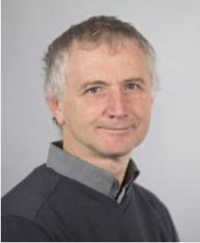
Medical doctor with a speciality in public health, working for 18 years in humanitarian medical organizations, Eric Comte, was acting as the medical director for MSF (Doctors Without Borders) in Geneva from 2010 to 2014. He has worked mainly in the Caucasus and Africa, addressing issues related to refugees, tuberculosis and tropical diseases. Eric currently works at the Institute of Global Health in Geneva (University of Geneva) as director of the Geneva Health Forum (https://geneveahealthforum.com)
He is administrator of ASCRES (Association de Soutien aux Centre de Recherches, d'Enseignements et de Soins). ASCRES coordinates a research and training centre located in Cameroon that develops projects in partnership with local and international organisations. The main focus are Wound care, Buruli, snake bite and gynaecological consultations (Female genital Schistosomiasis and cervical cancer).
He is interested in the development of a sustainable health economy, combining economic constraints with social needs. He is convinced that community involvement is an indispensable element in the development of health, which cannot be limited to care.
Hellen Gitau
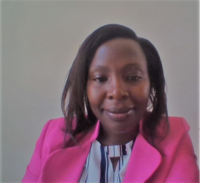
Hellen Gitau is an epidemiologist who is currently working at the African Population and Health Research Centre (APHRC), where she is supporting the Complex Urban System for Sustainability and Health (CUSSH) project. Her areas of focus are climate change, spatial planning, and solid waste management. She is interested in climate change and health, particularly the impacts of climate change on water, sanitation, and hygiene (WASH) and health services. She also has an interest in the circular economy within solid waste management sector, and how Africa can learn and implement best practices from developed countries. Hellen is a member of Planetary Health East Africa.
Dr. Christa Kasang
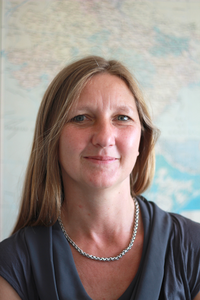
Dr. Christa Kasang MSc, PhD is a Senior Clinical Research Associate and Research Coordinator since January 1999 with a strong background in infectious disease-related research and conducting international clinical and operational trials. Since 2004 she is working as a Research Coordinator for the Medical Mission Institute and since 2013 for the German Leprosy and Tuberculosis Relief Association (DAHW/GLRA). So far her area of activity covers monitoring, supervision, design, coordination, evaluation, interpretation and publication of phase II/III and operational studies worldwide.
Dr. Sam Myers

Sam Myers is a Principal Research Scientist at the Harvard School of Public Health and is the founding Director of the Planetary Health Alliance (www.planetaryhealthalliance.org).
Sam’s research explores the human health impacts of global environmental change. His projects currently include exploring the human nutritional consequences of rising concentrations of CO2 in the atmosphere, falling populations of pollinating insects, and changes in global fisheries in response to ocean warming. He is interested in policy interventions to improve human health while stabilizing Earth’s natural systems. As the Director of the Planetary Health Alliance, Sam oversees a multi-institutional effort (over 320 organizations in over 60 countries) focused on understanding and quantifying the human health impacts of global environmental change and translating that understanding into action globally. For his research, Dr. Myers was the inaugural recipient of the Arrell Global Food Innovation Award in 2018 and Prince Albert II of Monaco prize for research at the interface of health and environment in 2015. He is the co-editor with Howard Frumkin of Planetary Health: Protecting Nature to Protect Ourselves published in August 2020.
Prof. Dr. Wolfgang Preiser
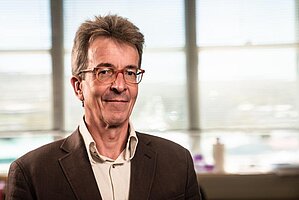
Wolfgang Preiser studied medicine and then specialised in medical virology in Germany and the U.K. Since 2005 he has been Head of the Division of Medical Virology in Tygerberg, South Africa. This combines a large routine diagnostic laboratory, part of the South African National Health Laboratory Service (NHLS), with an academic training and research laboratory, part of the University of Stellenbosch. Access to numerous samples and the ability to employ state-of-the-art methods enables him to address scientific questions of relevance to sub-Saharan Africa.
His research aims to close gaps in clinical and diagnostic virology, focusing on three areas: (i) improving laboratory diagnosis and monitoring of HIV patients whilst addressing issues such as antiretroviral drug resistance; (ii) the epidemiology and management of opportunistic viral infections and conditions; and (iii) the identification and characterisation of potentially emerging zoonotic viruses in their wildlife reservoirs and in the human population.
The Virology Tygerberg team collaborate on numerous projects, including CLIMADE Africa https://climade.health/africa. This is an African consortium formed to generate knowledge, develop locally appropriate tools and inform public health action for early warning and timely/targeted responses to pathogens amplified by climate change. A key objective is to fill critical knowledge gaps and blind spots of disease transmission predicted to pose increased threats in the future.
Strengthening virological research and diagnostic capacity in Africa through education and training is of paramount importance to Preiser. He was Speaker for Africa’s first-ever international research training group 'HIV/AIDS and Associated Infectious Diseases in Southern Africa', providing structured PhD training for 12 candidates in Cape Town and 12 at the partner university in Würzburg, Germany. Other activities related to scientific training include collaborating partners in Tanzania, Botswana and Mozambique.






